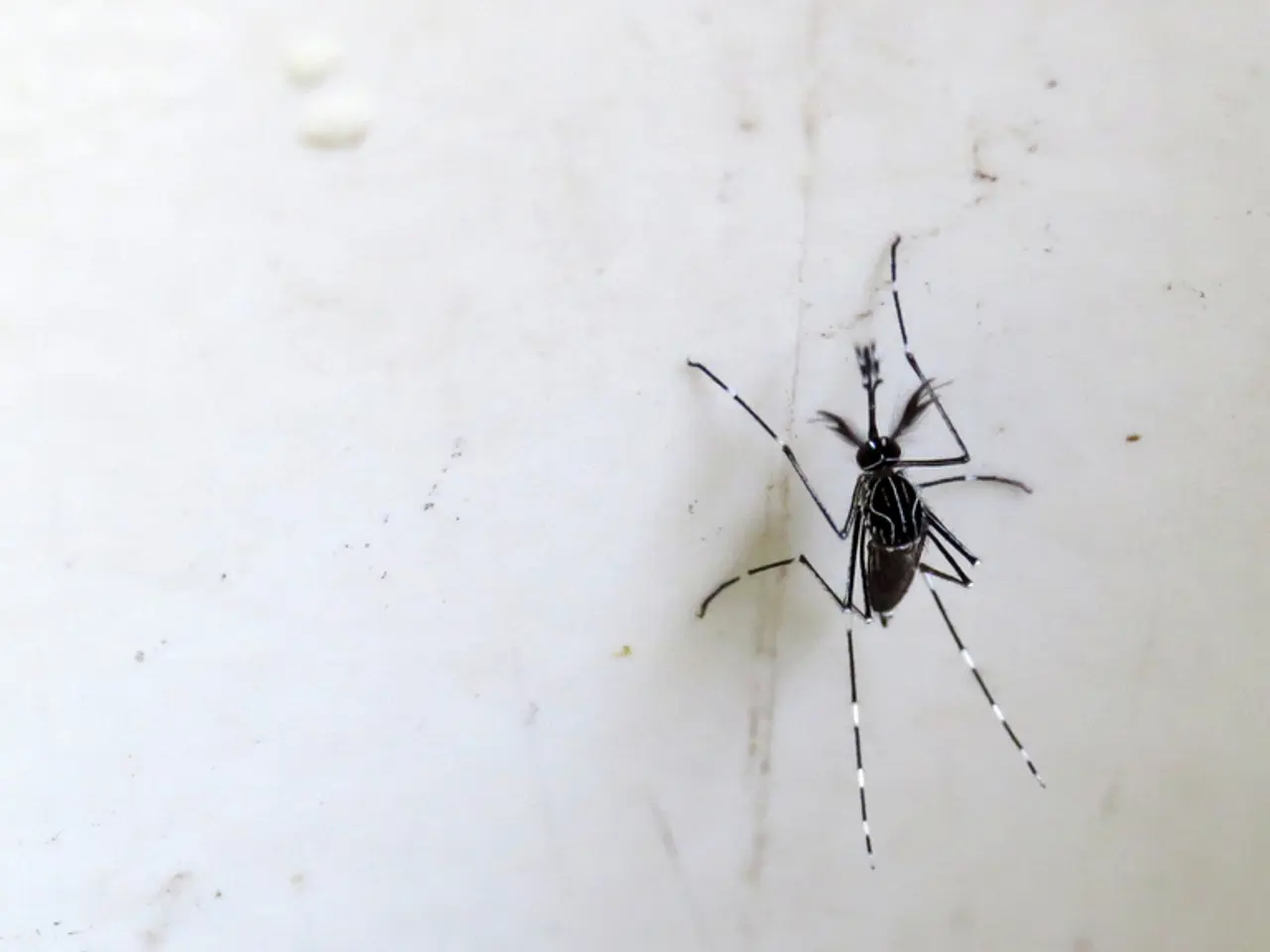Mosquitoes of the Asian tiger species are expanding their presence within North Rhine-Westphalia (NRW)
Asian Tiger Mosquito Spread in Germany Raises Health Concerns
The Asian Tiger Mosquito (Aedes albopictus) is increasingly spreading in Germany, particularly in the southern regions, due to climate change and international travel [1][3][4]. This expansion has raised significant public health concerns as this mosquito is a vector for several viruses, including chikungunya, dengue fever, Zika, West Nile virus, and potentially others like Oropouche virus and alphaviruses [1][2][4].
Potential Health Risks
The potential health risks associated with these viruses are severe. For instance, the Chikungunya virus causes fever, joint pain, and other flu-like symptoms. The number of outbreaks in Europe reached new highs in 2025 [1][4]. Dengue fever, characterized by sudden high fever, headaches, severe joint and muscle pain, poses a growing risk as the mosquito spreads north, with potential outbreaks in cities like Frankfurt [3]. West Nile virus causes fever, headache, and meningitis, with rising cases reported in Europe in 2025 [4][5].
Other viruses such as Tahyna, Sindbis, western equine encephalitis, and Oropouche may also be transmitted under certain temperature conditions by Aedes albopictus and related species [1].
Preventive Measures
To mitigate these risks, several preventive measures have been recommended. These include individual protection such as using mosquito repellents, wearing long-sleeved clothing and trousers especially at dawn and dusk, using bed nets, window screens, air conditioning or fans to reduce mosquito exposure [4].
Public health actions such as enhanced mosquito surveillance and control programs particularly in urban and peri-urban areas, monitoring of imported cases of mosquito-borne diseases, and public awareness campaigns to reduce breeding sites like standing water have also been suggested [2][4].
Research and monitoring continue to study the temperature effects on virus transmission and coinfections in mosquitoes to better predict outbreaks and develop targeted interventions [1].
Current Situation in Germany
In Germany, the Asian Tiger Mosquito is currently under special observation. By early August 2022, 12 cases of chikungunya fever had been reported in North Rhine-Westphalia, and 102 cases of chikungunya fever had been registered nationwide, twice as many as in the entire previous year [6].
The Robert Koch Institute (RKI) provides information about the potential for infections from the Asian Tiger Mosquito in Germany. In recent years, a total of five invasive midge species have established themselves in Germany, three of which are suspected of transmitting diseases, in addition to the Asian Tiger Mosquito [7].
Travelers should pay attention to flu-like symptoms such as chills, severe headaches, and fever after a trip, especially if they have recently visited risk areas like Southeast Asia or Central and South America [8]. Observed midges are mapped at www.mueckenatlas.com.
Conclusion
The increasing spread of the Asian tiger mosquito in Germany presents growing health risks from multiple mosquito-borne viruses. Addressing these risks requires a combination of individual protective behaviors and coordinated public health strategies. AOK Rhineland/Hamburg, in particular, has warned of potential health risks from tropical insects like the Asian Tiger Mosquito, emphasizing the need for vigilance and comprehensive control measures [2]. Climate change is expected to further extend the mosquito’s habitable range in Germany and across Europe, increasing the risk of established endemic transmission of these viruses in coming years.







